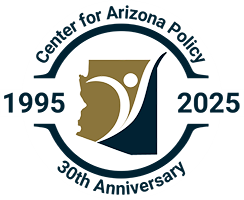A Professional’s Right to Believe
The U.S. Constitution, the Arizona Constitution, and several Arizona laws provide important protections for professionals to live out their faith in the public square. Under the First Amendment, “Congress shall make no law respecting an establishment of religion, or prohibiting the free exercise thereof; or abridging the freedom of speech.” Similarly, Article 20, Section 1 of the Arizona Constitution states, “Perfect toleration of religious sentiment shall be secured to every inhabitant of this state, and no inhabitant of this state shall ever be molested in person or property on account of his or her mode of religious worship, or lack of the same.” These constitutional provisions protect the right not only to believe and worship as one chooses, but to live consistent with one’s religious beliefs.
Arizona’s Religious Freedom Restoration Act provides even broader protections. The act recognizes that the “[f]ree exercise of religion is a fundamental right.” Therefore, the government may not burden (anything beyond ‘trivial, technical or de minimis infractions’) a person’s or a religious organization’s exercise of religion unless the law furthers a compelling governmental interest and it is the least restrictive means of furthering that interest (A.R.S. §§ 41-1493, –1493.01).
In 2012, Center for Arizona Policy (CAP) worked with the Arizona Legislature to pass a law to protect the rights of conscience for Arizona professionals regulated by the state, including for example doctors, nurses, pharmacists, social workers, lawyers, counselors, psychologists, architects, funeral directors, and a variety of other healthcare professionals. Under A.R.S. 41-1493.04, the government cannot “deny, revoke or suspend a person’s professional or occupational license, certificate or registration” for any of the following reasons:
- Declining to provide or participate in providing any service that violates the person’s sincerely held religious belief (except performing the duties of a peace officer).
- Refusing to affirm a statement or oath that is contrary to the person’s sincerely held religious beliefs.
- Expressing sincerely held religious beliefs in any context, including professional context as long as the services provided otherwise meet the current standard of care or practice for the profession.
- Providing faith-based services that otherwise meet the current standard of care or practice for the profession.
- Making business related decisions in accordance with sincerely held religious beliefs such as:
- Employment decisions, unless otherwise prohibited by state or federal law
- Client selection decisions
- Financial decisions
Representative Pamela Powers-Hannley (LD9) filed a bill, HB2068 this session that would serve to intimidate health care professionals, hospitals, pharmacies and more by requiring any religious objects be stated up front. The bill, if passed, would effectively judge medical professionals’ beliefs and burden them based on those beliefs. As of today, it has not been scheduled for a hearing.
For more information about rights of conscience for professionals, click here.
ICYMI –
- The Arizona Senate yesterday passed SCR1029, a resolution that urges the U.S. Congress to enact the Born-Alive Abortion Survivors Protection Act and the Ensuring Accurate and Complete Abortion Data Reporting Act of 2019. The vote was 16-9-5.
- In a tale of two states, West Virginia passed a born alive law Wednesday, ensuring the care of babies born alive after an abortion attempt. The next day, Virginia killed a similar bill.
- Read one women’s account of her baby born alive after an abortion attempt, and her horror when nothing was done to save him. She testified at the U.S. Senate last week in an effort to convince members to pass protective legislation.
- Al Mohler discusses the ever-changing sexual ethics of our day in one of this week’s The Briefing. Mohler tackles polygamy, polyamory, and more.
Stay connected and consider receiving additional publications by joining the CAP Network.


